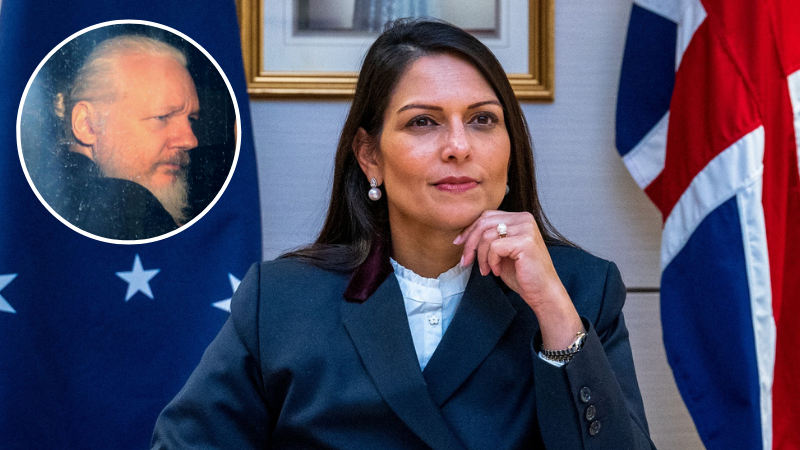Twelve press freedom organisations have urgently appealed to the UK’s Home Secretary Priti Patel to reject the US government’s extradition request for Julian Assange, the founder of Wikileaks.
The decision to sign off on Assange’s extradition has landed on Patel’s desk following a UK judge’s decision to approve the request on 20 April. Patel must now decide whether to provide final approval for the request, with Assange’s lawyers having four weeks to appeal should she approve.
“We, the undersigned press freedom, free expression and journalists’ organisations are writing to express our serious concern regarding the possibility of extradition of Wikileaks publisher Julian Assange to the United States and to ask you to reject the US government’s extradition request,” the open letter reads, with the organisations requesting a meeting with Patel on the issue.
According to the UK government’s website, the Secretary of State is prohibited from approving the extradition order if the person being extradited is at risk of facing the death penalty, if no additional charges on top of the ones already linked with the extradition charges are going to be filed, or if the person being extradited has already undergone such a process from another country to the UK.
“If none of these prohibitions applies, the Secretary of State must order extradition. Or, if surrender is prohibited, the person must be discharged,” the UK government states. While human rights considerations previously formed part of the Home Secretary’s possible reasons for the prohibition of extradition requests, the power to do so was transferred to the High Court in 2013.
Assange has been battling against the extradition request for years following the US’ relentless persecution against him due to the publication of classified US military files. The leaks on Iraq alone amounted to a total of almost 4,000,000 documents from the US Department of Defence and had exposed war crimes committed in the Middle East.
In March, Assange’s legal team had unsuccessfully appealed to the UK’s Supreme Court following the High Court’s decision to approve the extradition, overturning a previous District Court ruling which prohibited extradition on the basis of serious concerns over Assange’s mental health.
Requesting Assange’s immediate release from prison, “where he has remained on remand for three years despite the great risks posed to his mental and physical health”, the organisations emphasised how Patel’s decision could lead to Assange spending up to 175 years in prison, should he be declared guilty on all 18 charges levelled against him.
US authorities, who have earned global condemnation for their persecution of Assange and the attack on press freedom, were also accused of fabricating evidence through a man who was previously presented as US prosecutors’ star witness. In June last year, Stundin reported how Sigurdur Ingi Thordarson, a diagnosed sociopath and serial fraudster who cosied up to US authorities seeking to further their case against Assange, admitted that he’d spun a false narrative about his links to Assange to advance his own interests.
In September 2021, further reports exposed an alleged “vendetta” campaign against Assange that was masterminded by the Central Intelligence Agency (CIA).
“Mr Assange would be unable to adequately defend himself in the US courts, as the Espionage Act lacks a public interest defence,” the organisations said.
The Espionage Act does not take into account arguments that Assange’s publication of classified information was done for the benefit of the public.
“His prosecution would set a dangerous precedent that could be applied to any media outlet that published stories based on leaked information, or indeed any journalist, publisher or source anywhere in the world,” the statement adds.
Besides the rejection of the extradition request and Assange’s release from prison, the organisations also called on Patel to “publicly commit to ensuring no publisher, journalist or source ever again faces detention in the UK for publishing information in the public interest”.
The statement was signed by several national and international branches of PEN, Reporters Without Borders, ARTICLE 19, Big Brother Watch, Blueprint for Free Speech, the European Centre for Press and Media Freedom, the European Federation of Journalists, Index of Censorship, the International Federation of Journalists, the National Union of Journalists, and the Peter Tatchell Foundation.












